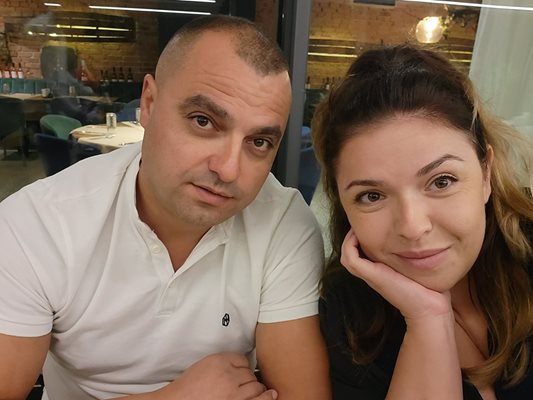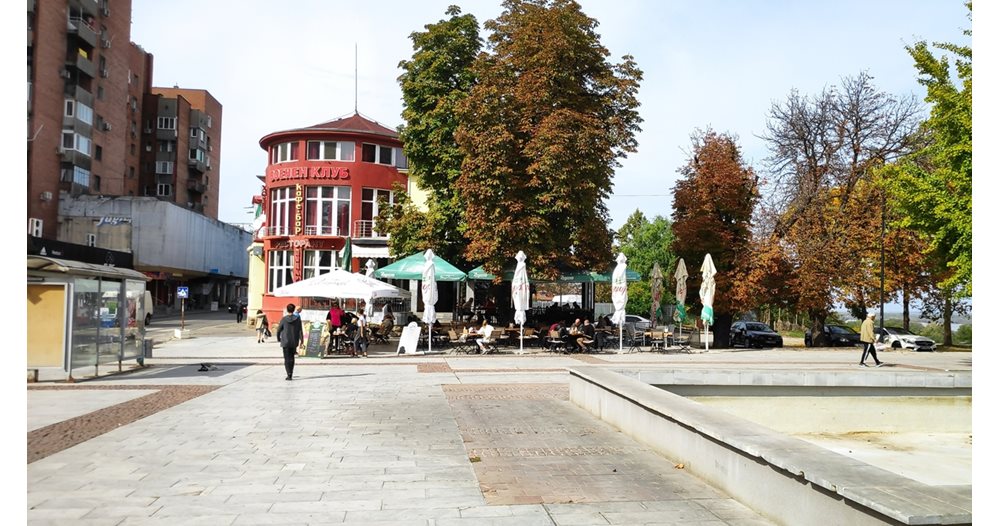Mayor Gencho Genchev: The trend is reversing, the kindergartens that are about to close are already full
The death rate during the pandemic was double
Data from the NIS population census showed that all municipalities in Bulgaria decreased in population in the period 2011-2021, except for 5.
We talked about those who increase their residents in an essay in the latest issue on Saturday.
However, what are the reasons why some municipalities have lost a significant part of their population
Distance learning, higher education reforms, and covid led to startling figures that Svishtov lost 35.4% of its population between the two censuses.
The municipality has decreased by over 15,000 people in 10 years and out of over 42,000 inhabitants, 27,595 people have indicated their residence there. And this is not because of migration, but because the thousands of students who filled the Academy of Economics have disappeared from the city, it shows the dynamics of the numbers.
“In the 2011 census, all the students were counted at their current address where they were studying. There were about 10,000 more people there. Then we started deleting the registration, just for mine. And the start of that. – 1,700 people, including 70 young people from the Ovcha Mogila Social and Vocational Education Center, who are displaced “, explains Mayor Gencho Genchev.
At the time, they campaigned for the academy to register future graduates in the city, so that when they determined the categories of municipalities in relation to European money, Svishtov could have access to funds under the “Growing Regions” OP. .
“In the municipality there were 5 tables in the hall and the students went there to register.
Those who do not go do not take exams
After that, all the students voted with their student cards and this is how the elections were won, “recall the senior officials of the local administration.
There are now very few students who actually live in Svishtov.
“The economy and the backbone of the city were the students. It is the only non-regional to have a higher education institution and it has provided tremendous added value. We have a college town that is currently haunted by ghosts.
Services, trade, entertainment were offered. There was also a separate post office.
A huge chair for 300 people to eat at the same time. The accommodations were rented for students. With higher education reforms, our educational institution admits 2,500 people, but with this distance, correspondence and online education, they don’t really reside.
You hear it when they come for exams. There is nowhere to park and after 3 hours the city is empty “, says the mayor.
“The exit of students is Svishtov’s greatest pain. I had friends who provided accommodation, now it’s all empty. And this online learning due to covid has really hit the Teslas,” says Delyana Slaveva, one of the few who has returned. from abroad to his hometown. (Look at the box.)
Mortality is the next reason for Svishtov’s high percentage of extinct population. The number of deaths in the period from 2011 to 2021 is 7,595.
“We have the highest mortality rate during these two years of the pandemic. While in previous periods it was on average 400 per year, for these years it is double that. Young people and many middle-aged people have lost the battle with covid.” , Gencho Genchev analyzed.
Also find the positive: despite the decrease, the population is not aging. The largest percentage comes from Svishtov
between 35-50 years – of working age
The third reason is economic: people leave their lives to settle in larger cities, mainly in Sofia, due to the higher pay.
It is significant that the largest employers in Svishtov providing pay are the municipality with all units and the Academy of Economics.
Reading the data from the GRAO, the mayor pointed out that only 388 people had officially moved.
“If we divide them into families, they are about 150 families.
We have very little migration
of the population, “says the mayor.
At noon on a sunny October day, Svishtov Square is deserted. In the tidy city garden, friends have a coffee during their lunch break.
“People leave Svishtov because there is no work. The” Sviloza “factory is a serious employer, there is a customs office in the city, the Academy of Economics is also a serious institution, but young people run away because the city is cut off and salaries are low, “sums up Sashka Georgieva, who works at the Center for Professional Qualification of the Academy of Economics.
Desislava Ivanova, who is in the park with her one-year-old daughter, says she stayed because she managed to find a job here in her specialty: a masters degree in financial management.
“That still holds me back. Also, the city is extremely nice for raising small children.
The population is aging, the outflow of students has strongly affected the economy. No new activities.
People leave for a bigger city or abroad. It is about creating new jobs, with salaries that satisfy them, “reflects the young mother.
About 1,000 BGN is the average salary in Svishtov, confirms the mayor. However, he has another sociology in which he sees a reversal of the demographic curve to the downside.
“When you walk past a block in the evening and see how many lights are on, you realize. The other reference point is the nurseries. When I started in 2015 as mayor, two gardens were about to close. Currently they are full.
Many young people have returned from abroad with one or two children to settle in their hometown because they feel that it is becoming difficult for them there, “says Genchev. They have held 8 kindergartens in the villages, financing them from the municipal budget.
“Conditions are imposed that give even greater force to the depopulation of populated areas. For example, a settlement with the equivalent of 2,000 inhabitants cannot require sewerage. What is a settlement without wastewater in the 21st century? Foreigners they will ask again:
What is this hut in the courtyard,
referring to the external toilet “, asks the mayor with a tone of reproach to the state.
The transport connectivity of the border municipality, located almost 100 km from the regional center, remains a serious problem. However, reasonable investments and a good business environment can give Svishtov a perspective.
“The industrial zone of the Danube is a management priority for us. Around BGN 30 million await Svishtov from the recovery and sustainability plan.
With the investment, the industrial park should be independently gasified and become the first in Bulgaria to be the operator of gas distribution to future investors, “added Mayor Genchev.
Delyana and Costren are back from England: here it’s perfect for children
Delyana Slaveva is 36 and her husband, Desideri, is 38. They both graduated from the Academy of Economics.
They lived in Chester, England for 13 years. You worked as a receptionist in a hotel. Their two children were born there, who are now 9 and 4 years old.The family has been back in Svishtov for two and a half years.
“Just before the covid pandemic, we went home. It became very difficult there with two children. There is no one to help, the grandmothers are gone. In Svishtov it is perfect for raising children. Everything is close, if decide somewhere where to take them to classes, to football – everything is 3 minutes away, there is no traffic, “explains Delyana.

They managed to organize their lives in Svishtov. They have an apartment. She and her husband Desideri are engaged in online trading. The two boys go to school and kindergarten.
“The children here are calmer, perhaps because we were constantly traveling there, they adapt quickly,” says Delyana. According to her, the decrease in the number of people in the city is evident, but now it is calmer.
“I don’t know what expectations my fellow citizens have. A year ago we were looking for someone to help us, and the first thing they asked us was” When will I rest and how much money will I get? “. I don’t know if there really is no work, or if they just don’t feel like working.
Everyone is wondering how we can return, and to Svishtov. We will be here for the next 10 years – to study our children, to see where they will go. I hope someone will join our academy, “concludes Delyana.


